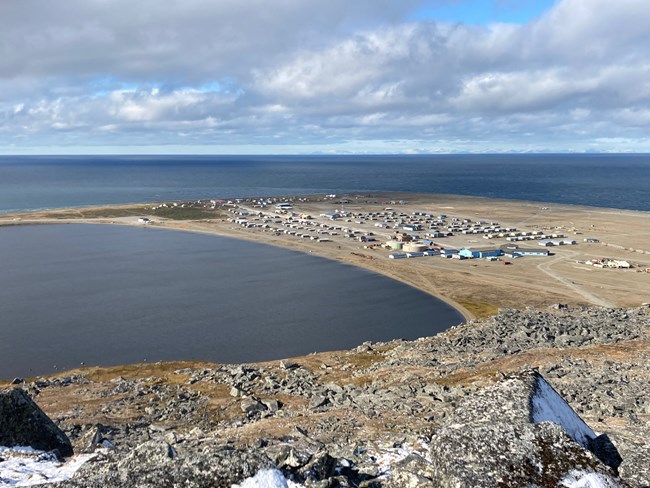
Yoko Kugo, Center for Cross-Cultural Studies at the University of Alaska (Fairbanks, Alaska)
Contact: Yoko Kugo
Duration: 2 years (2023 -2025)
Indigenous peoples of Beringia have traditionally used ice cellars, underground caches, and pits to preserve and share locally harvested food to maintain their lifeways. By the mid-20th century, their food storage practices had changed due to rapid environmental fluctuations and social changes. A team of international researchers from the Center for Cross-Cultural Studies at the University of Alaska (Fairbanks, Alaska) and project partners formally funded by the Research Institute for Humanity and Nature (Kyoto, Japan) are working together to understand the uses of food storage and food lifeways in Beringia and how the communities respond and adapt to these global changes. Building on the community-based participatory research supported by the National Science Foundation, the project team is planning Youth and Elders Workshop, which will take place in Gambell in 2024, and will be supported by the Shared Beringian Heritage Program.
The workshop participants will include youth and elders from Savoonga, Gambell and Point Hope as well as three researchers from the University of Alaska, Fairbanks. Storytelling, hands-on activities, and field trips will foster sharing an open discussion. Dialogues and experiences during the workshop will affirm Indigenous place-based knowledge, enhance confidence in traditional food lifeways and promote surviving and thriving in Beringian communities.
Last updated: September 1, 2023
